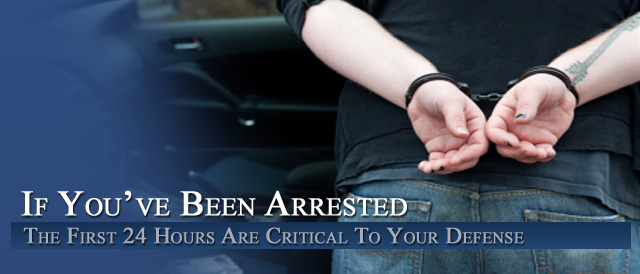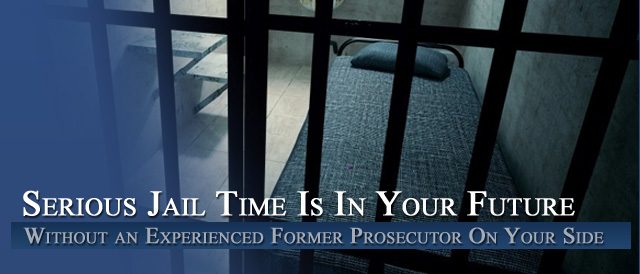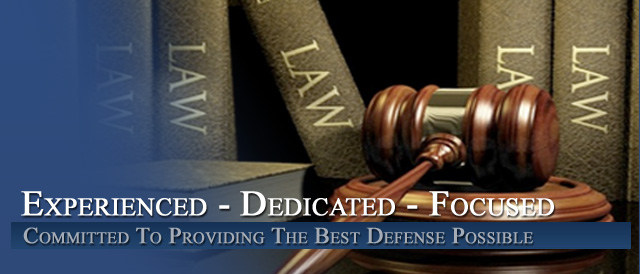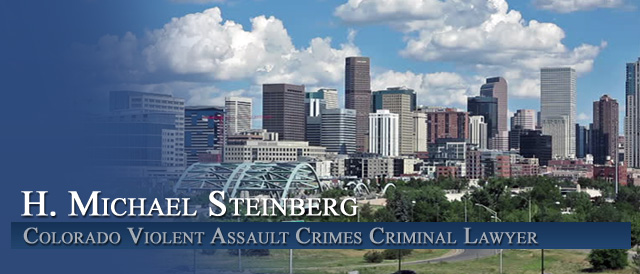





The Police Cannot Create Their Own Exigent (Emergency) Circumstance To Violate Your Rights In Colorado
By H. Michael Steinberg Colorado Violent Crimes Criminal Lawyer
 The Police Cannot Create Their Own Exigent (Emergency) Circumstance To Violate Your Rights In Colorado – The police cannot violate your Fourth Amendment right to privacy in your own home by creating an “exigent circumstance” (an emergency situation) and then attempting to boot strap a way into your home without a search warrant.
The Police Cannot Create Their Own Exigent (Emergency) Circumstance To Violate Your Rights In Colorado – The police cannot violate your Fourth Amendment right to privacy in your own home by creating an “exigent circumstance” (an emergency situation) and then attempting to boot strap a way into your home without a search warrant.
The best example of this technique is to reflect on some of the old episodes of Law and Order where Lennie Briscoe would illegally enter a home by pretending to hear a call for help – when there was none. While this was humorous – it is really not all that funny in real life.
The “Exigent Circumstances Exception” To The Fourth Amendment’s Search Warrant Requirement
The “exigent circumstances exception” to the Fourth Amendment’s requirement for a search or arrest warrant is essentially this: – when there is a lawfully recognized emergency situation the police are not required to “get a warrant.”
A common example of an exigent (emergency) circumstance is the need for law enforcement to prevent the imminent destruction of evidence. Another is the Law and Order type distress call from a person in a home or apartment. The latter exception is also called the “emergency aid” exception and permits the police to “enter a home without a warrant to render emergency assistance to an injured occupant or to protect an occupant from imminent injury.”
Yet another example of an exigent circumstance is the “hot pursuit” exception. The hot pursuit exception permits the police to pursue – depending on the nature of the crime, a fleeing suspect into a home without a search or arrest warrant.
It is important to understand that the so called “exigent circumstance rule” is not a single rule, but rather multiple rules… or multiple “exigent circumstances.”
Each of the exigent circumstances requires a different “test” to determine the reasonableness of the application of that exception to the facts of the case.
The Supreme Court has recognized at least five separate exceptions where law enforcement may legally enter a home without a warrant:
(1) To fight a fire and investigate its cause;
(2) When engaged in the “hot pursuit” of a fleeing suspect;
(3) To render emergency assistance to an injured occupant or to protect him from imminent injury;
(4) When the safety of law enforcement officers or the general public is immediately threatened, and
(5) To prevent the imminent destruction of evidence.
Understanding “Police-Created” Exigencies
The “doctrine of police-created exigencies,” recognized by the Courts as a “pretext” to try to get around the Fourth Amendment’s warrant requirement, prohibits a situation where the police create the exigent circumstance and then try to circumvent the warrant requirement by relying on the exigency that they created to justify a warrantless entry – of – say a home. (See below).
Put more simply – the police may not set fire to a house and then enter without a warrant because of a need to rescue any people who may be inside.
Kentucky v. King
The most recent United States Supreme Court case addressing the police created exigency is the case of Kentucky v King. In a nearly unanimous (8-1) decision, the Supreme Court held that the police may not rely on an exigency created by any action by them that violates the Fourth Amendment or constitutes a threat by the police to do something in violation of the Fourth Amendment.
To understand the decision – we must review some basic Constitutional Law.
Understanding The Fourth Amendment
The Fourth Amendment to the United States Constitution declares:
The right of the people to be secure in their persons, houses, papers, and effects, against unreasonable searches and seizures, shall not be violated, and no Warrants shall issue, but upon probable cause, supported by Oath or affirmation, and particularly describing the place to be searched, and the persons or things to be seized.
The Fourth Amendment imposes two requirements:
(1) that “all searches and seizures must be reasonable”; and
(2) that “a warrant may not be issued unless probable cause is properly established and the scope of the authorized search is set out with
The ultimate touchstone of the Fourth Amendment is ‘reasonableness. As Justice Ginzberg has written:
Warrants to search…shall issue only upon a showing of “probable cause” to believe criminal activity is afoot. These complementary provisions are designed to ensure that police will seek the authorization of a neutral magistrate before undertaking a search or seizure. Exceptions to the warrant requirement, this Court has explained, must be “few in number and carefully delineated..”
“Heightened” Constitutional Protection For Your Home
Few places in your world are entitled to more Constitutional protections than your home. The Courts have written extensively on this issue:
In no quarter does the Fourth Amendment apply with greater force than in our homes, our most private space which, for centuries, has been regarded as ” ‘entitled to special protection.’ “
Home intrusions, are “the chief evil against which … the Fourth Amendment is directed.”
At the Fourth Amendment’s very core stands the right of a man to retreat to his own home and there be free from unreasonable governmental intrusion.
Searches and seizures inside a home without a warrant are therefore “presumptively unreasonable.”
What Are The “Police Action” Factors That May Legally Impact Your Rights To Privacy In Your Home?
The police have no more right to require you to open your front door than a child selling girl scout cookies or a UPS driver seeking your signature. Without a search warrant – you have a complete right to refuse to answer your front door to the police and the police may not leave the established path to your door to seek admission from any other viewpoint on your property.
The proverbial law enforcement “knock and talk” is considered to be in the nature of a consensual encounter that takes place at the doorway of your home. It is entirely legal for the police to utilize the knock and talk as it is a recognized and “reasonable investigative tool.”
On the other hand the Courts are keenly aware that the methods used by the police to conduct a knock and talk at a private residence—the most private of all structures protected by the Fourth Amendment – your home – will bear close scrutiny to make certain the contact does not take the kind of “dreaded knock on the door” that is so common in totalitarian and police states.
Understanding When The Knock And Talk May Have Gone Too Far And Is Challengeable In Court
Trial Courts have examined “knock and talks” in several different cases and certain guidelines have emerged which – while not completely dispositive of whether the encounter was legal or illegal – may – taken together amount to an unconstitutional police action.
What follows are the major questions that raise the important context of these police actions.
How Did The Police Make Contact?
The way the police make first contact with the person or persons in their home is critical. A consensual contact means the person must feel as if they were at liberty to ignore the police presence and go about their business.
A “knock and talk” must not be a show of force that makes demands home occupants.
How Did The Police Knock On The Door?
While polite knocking is considered permissible, persistent unyielding knocking may cross the line and amount to a demand to open the door – rendering an otherwise consensual encounter with the police an unconstitutional “seizure.” An extreme example might be, as in one recent case, several police offices constantly knocking and yelling for the occupant to open the door in the early morning hours. Under these circumstances the person would probably not feel free to ignore the command implicit in the actions of the police.
In the case of U.S. v. Jerez sheriff ‘s conducting a “knock and talk” went to a hotel room and took turns knocking on the door for about five minutes. When there was no response, a deputy began knocking loudly on the window and another officer “shone his flashlight through the small opening in the window’s drapes, illuminating Mr. Jerez as he lay in the bed.”
The United States Supreme held that “[t]his escalation of the encounter renders totally without foundation any characterization that the prolonged confrontation was a consensual encounter.”
It wss not the loudness of the knocking or the loud announcement that made the difference – it was the totality of the circumstances of the actions of the police that pushed the case over the limit for the justifiable exercise of a “knock and talk.”
Was There A Demand To “Open The Door!”
One of the clearest lines that cannot be crossed is when the po;ice demand that residents of a home open the door.
One Federal Circuit Court put it this way:
“When officers demand entry into a home without a warrant, they have gone beyond the reasonable ‘knock and talk’ strategy of investigation.”
When this fact is present there can be no consent as a matter of law.”
How Did The Police Greet A Suspect Or Other Person Who Answers The Door?
The manner in which officers greeted the suspect or other person who answers the front door is also critically important. Were the police “overbearing or officious” in their attitude when they confronted the resident to the point that the officers appeared to the resident that the police have a right to obtain answers to their questions or to conduct a search?
What Time Of Day Did This Police Contact Take Place?
When a police contact or a knock and talk takes place at night – it is scrutinized even more closely. Late at night home resident have a “special vulnerability” when they are “awakened in the night by a police intrusion at their dwelling place.”
The courts:
“….have recognized that nocturnal encounters with the police in a residence (or a hotel or motel room) should be examined with the greatest of caution.”
In Jerez (above) the “knock and talk” was held to have been unlawful based on a combination of police actions but the fact that the police the arrived at about 11 P.M. at a time the residents had gone to bed; was very significant to the Court’s decision.
How Long Did The Police Remain On Scene After There Was No Response To The Knocking At The Door?
As noted above, the police have no more right to approach your home than any other visitor. The police may walk to the front door along the same “normal” access routes taken by anyone from the public and like anyone else, the police may knock or otherwise announce their presence.
If no one answers the door “within a reasonable time,” the police cannot loiter and remain on the property. They may not leave the proper and legal path to the front door to “explore the grounds.” The reason is that this kind of variance would be outside the scope of the implied consent offered to any visitor to your home.
The United States Supreme Court put it this way, the police are impliedly authorized “to approach the home by the front path, knock promptly, wait briefly to be received, and then, (absent invitation to linger longer), leave.”
How Many Police And / Or Other Support Personnel Were Present?
While there is no actual limit ti the number of officers who may approach your home, more than two officers attempting a “knock and talk” at least one Court has held that a “show of force” ten to twelve armed officers who meet in a park, drive to the residence, and then form two group with a helicopter overhead… crosses the line.
Every case will be judged by it’s own facts – I hope this brief review helps put into perspective the limits on police authority in the “knock and talk” context.
The Police Cannot Create Their Own Exigent (Emergency) Circumstance To Violate Your Rights In Colorado
If you found any of the information I have provided on this web page article helpful please click my Plus+1 or the Share buttons for Twitter and Facebook below so that others may also find it.
The reader is admonished that Colorado criminal law, like criminal law in every state and at the Federal level, changes constantly. The article appearing above was accurate at the time it was drafted but it cannot account for changes occurring after it was uploaded.
If, after reading this article, you have questions about your case and would like to consider retaining our law firm, we invite you to contact us at the Steinberg Colorado Criminal Defense Law Firm – 303-627-7777.
Never stop fighting – never stop believing in yourself and your right to due process of law. You will not be alone in court, H. Michael will be at your side every step of the way – advocating for justice and the best possible result in your case. H. Michael Steinberg is passionate about criminal defense. His extensive knowledge and experience of Colorado Criminal Law gives him the edge you need to properly handle your case
 ABOUT THE AUTHOR: H. Michael Steinberg – Email The Author at [email protected] – A Denver Colorado Criminal Defense Lawyer – or call his office at 303-627-7777 during business hours – or call his cell if you cannot wait and need his immediate assistance – please call 720-220-2277.
ABOUT THE AUTHOR: H. Michael Steinberg – Email The Author at [email protected] – A Denver Colorado Criminal Defense Lawyer – or call his office at 303-627-7777 during business hours – or call his cell if you cannot wait and need his immediate assistance – please call 720-220-2277.
“A good criminal defense lawyer is someone who devotes themselves to their client’s case from beginning to end, always realizing that this case is the most important thing in that client’s life.”
You should be careful to make a responsible choice in selecting a Colorado Criminal Defense Lawyer. We encourage you to “vet” our firm. Over the last 30 plus years – by focusing ONLY on Colorado criminal law – H. Michael has had the necessary time to commit to the task of constantly updating himself on nearly every area of criminal law, to include Colorado criminal law and procedure and trial and courtroom practice. H. Michael works hard to get his clients the best possible results in and out of the courtroom. He has written, and continues to write, extensively on Colorado criminal law and he hopes this article helps you in some small way – The Police Cannot Create Their Own Exigent (Emergency) Circumstance To Violate Your Rights In Colorado.

Other Articles of Interest:
- Colorado Criminal Law – The Law Of “Fresh Pursuit” – Can The Police Chase You Into Another County Or State?
- Can I Obtain A Colorado Police Officer’s Records? – The Law
- The Colorado Crime of Third Degree Assault 18-3-204
- Colorado Assaults On Police Officers – Dangerous Laws 18-3-203 & 18-3-204
- The Colorado Crime Of Second Degree Assault – 18-3-203












